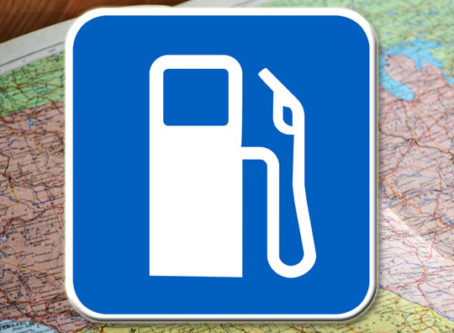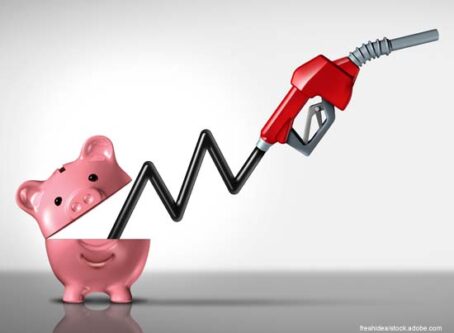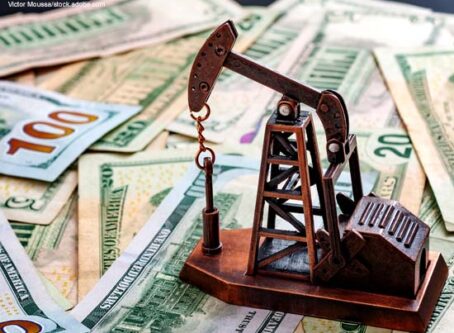UPDATE: Fuel taxes topic of hot conversation in 12 states
During the past six years nearly 30 states have raised or reformed their fuel tax rates. Despite the progress made to address transportation funding needs legislators in more and more states continue to pursue additional revenue enhancements.
The Owner-Operator Independent Drivers Association believes increasing the fuel tax is the most equitable way for states to generate additional revenue.
Below is the latest information on activities at statehouses across the country to adjust fuel tax rates.
Alabama
Gov. Kay Ivey signed into law on Tuesday, March 12, a bill to raise revenue for road and bridge work throughout the state.
The main component of Ivey’s plan is to raise the state’s fuel tax rates by a dime.
The state now collects 18 cents per gallon on gas and 19 cents on diesel. The fuel rates have remained unchanged since 1992.
Senators voted 28-6 earlier in the day on Tuesday to approve the bill during a special session called by the governor to address transportation funding. House lawmakers previously approved HB2 on an 84-20 vote.
Today is truly a historic day for AL! By passing the Rebuild Alabama Act, the Legislature has ensured AL’s infrastructure will be improved for generations to come. This wasn’t an easy task, but the men & women of the Legislature boldly came together to fix a decades old problem. pic.twitter.com/yYrhzQKPnq
— Governor Kay Ivey (@GovernorKayIvey) March 12, 2019
The 18-cent gas tax and 19-cent diesel tax will increase by 10 cents over three years. Effective Sept. 1, the tax rates will be raised by 6 cents. Additional 2-cent increases will occur in October 2020 and 2021.
The additional tax collection would raise $323 million annually when fully implemented.
Also included is a plan to index the state’s excise tax rate. The change to indexing allows for the fuel tax to rise automatically with the rate of inflation.
Revenue will be routed to state, county and municipal governments to fund infrastructure improvement, preservation and maintenance projects.
Arkansas
A new law in raises road revenue via a new wholesale fuel tax, and through other state revenue.
SB336 will raise nearly $95 million annually for the state Department of Transportation. About one-third of the revenue will come from the new tax.
Unchanged since 1999, the state collects a 21.5-cent excise tax on gas purchases. A 22.5-cent rate is collected on diesel purchases.
Gov. Asa Hutchinson signed into law a bill to implement a wholesale fuel tax that amounts to a 3-cent-per-gallon gas tax increase. Effective Oct. 1, the new rate will be 24.5 cents. At the same time, the diesel tax will increase by 6 cents to 28.5 cents.
It is a great day for AR. I signed the largest & most comprehensive highway-funding plan in our state’s history. This long-range strategy will bring the state’s roads & bridges up to date & pay for their upkeep into the future. Thank you to those who made this happen. pic.twitter.com/hEAob6b1cy
— Gov. Asa Hutchinson (@AsaHutchinson) March 12, 2019
The new tax will also be indexed to increase by up to one-tenth cent per year over the next decade.
The wholesale tax is estimated to raise $59 million annually.
“Our roads are vital to so many areas of everyday life,” Hutchinson said in prepared remarks. “We need great highways if we are going to compete for the industry and business that are crucial to continuing to improve our quality of life. We have done this for ourselves and for our future.”
The legislative action follows the governor’s proposed funding plan to raise more than $400 million each year with counties and cities receiving about one-quarter of the amount. The majority of revenue will come from extending permanently the half-cent sales tax that is dedicated to highways. The tax was implemented in 2012 with a 2023 sunset date.
House and Senate lawmakers voted to make the extension permanent. HJR1018 now must go to voters for final approval.
Idaho
An effort to route more money to roads came up one state legislator short of likely passage at the statehouse. H88 called for putting more money from vehicle taxes and fees into roads.
Idaho law now directs 5 percent of the state’s Highway Distribution Account to the Idaho State Police. The account is largely funded from fuel taxes and vehicle fees.
The House voted 56-14 in mid-February to advance a bill to transition funding for troopers from the fuel tax to the state’s General Fund. Senate lawmakers voted 18-17 on Tuesday to kill the bill.
The bill sought to phase out trooper funding from vehicle taxes and fees over five years. Ultimately, the $18 million now going to the State Police would instead go to state and local roads.
Critics of the plan said they were concerned how education funding would be affected by the revenue switch.
Kansas
A state task force recommended that state lawmakers pursue more money for transportation through sales taxes, the fuel tax, and a fee on electric vehicles.
Multiple efforts are underway in the statehouse to address road funding needs via a fuel tax increase.
HB2370 would raise the 24-cent gas tax by 3 cents to 27 cents over three years. The 26-cent diesel tax would be increased by 4 cents to 30 cents over the same time period.
A similar effort, HB2381, would raise tax rates for gas and diesel by 6 cents to 30 cents and 32 cents, respectively. The increases would take place at one time.
The bills received initial consideration Tuesday in the House Taxation Committee.
Massachusetts
Multiple efforts underway at the statehouse would raise fuel rates in certain instances.
Massachusetts now collects a 24-cent-per-gallon tax on gas and diesel purchases.
H2497 would raise the fuel tax by 5 cents per gallon to 29 cents.
H2592 and S1667 would authorize a local option gas and diesel excise tax. Specifically, any city or town could choose to collect up to a 5-cent excise tax on fuel sales.
One more bill singles out authorization for a local option tax in the town of Charlton. S1672 would permit the locale along Interstate 90 in Worcester County to collect up to an additional 3 cents in excise tax on gas and diesel.
The bills are in committee.
Michigan
Gov. Gretchen Whitmer is calling on state lawmakers to get a deal done to nearly triple the state’s fuel tax rate. The revenue would be routed into a new fund devoted to maintain and reconstruct the state’s most heavily traveled roadways.
The state now collects a 26.3-cent tax on fuel purchases. Revenue is divvied between the state DOT (39 percent), county roads (39 percent), and cities (22 percent). The state also charges a 6 percent sales tax on fuel purchases.
As part of her first budget plan, the Democratic governor wants to increase the state’s fuel tax rate by 45 cent per gallon. The tax increase would come in three 15-cent installments every six months. When fully implemented, the state’s tax rate would become the nation’s largest at 71.3 cents.
Nearly three-quarters of the anticipated $1.5 billion in new revenue would be applied to state roads. The remaining amount would go to local roads.
Michigan last raised the fuel tax rate in 2015 by 7.3 cents.
Leaders in the Republican-led statehouse oppose the proposed fuel tax increase for being excessive.
Minnesota
Gov. Tim Walz has announced his two-year budget proposal to raise revenue for items that include statewide transportation projects.
The main component of the budget proposal would nearly double the state’s excise tax on fuel purchases.
Walz has said the state needs $18 billion over the next two decades simply to operate and maintain current infrastructure. The Democratic governor’s proposal is estimated to raise $18 billion over the next 20 years.
To help eat into the funding gap he wants to increase the 28.5-cent excise rate on gas and diesel by 20 cents over two years. At that time, the excise rate would reach 48.5 cents.
The tax increases, however, would not end there. The governor’s budget proposal would also index the tax to inflation, which would allow for regular increases.
It is estimated that the tax increases would raise about $6.5 billion over 10 years.
The motor vehicle sales tax and registration tax would also be increased. The vehicle taxes are estimated to raise another $4 billion over the same time period.
Multiple Republican lawmakers have introduced rebuttal efforts in both statehouse chambers. HF2469/SF2203 would permit drivers to decide at the pump whether they want to pay the additional 20 cents per gallon.
Missouri
Transportation officials in Missouri say a dire situation to fund road and bridge work will only worsen until legislators get a deal done.
The state’s Department of Transportation has said there is an $825 million gap in annual road and bridge funding.
Less than six months after Missouri voters rejected a ballot proposition to raise the state’s fuel tax rate by 10 cents, the House Transportation Committee last week held initial discussions on a bill to raise the state’s 17-cent-per-gallon tax by the same amount.
Sponsored by Rep. Steve Butz, D-St. Louis, HB822 would raise the tax rate by 10 cents over five years.
The increase is estimated to raise $429 million annually once fully implemented.
A similar Senate bill would raise the tax rate by 2 cents per year over three years. At that time, the tax rate would reach 23 cents.
The bill, SB430, is scheduled for consideration on Thursday, March 14, in the Senate Transportation, Infrastructure and Public Safety Committee.
North Dakota
Two failed efforts sought to increase the state’s fuel tax rate to boost transportation funding.
The state now collects 23 cents per gallon on diesel and gas sold. The tax raised nearly $166 million for road and transit work in the past year.
The House and Senate bills called for increasing the excise rate by 7 cents to 30 cents.
Ohio
At the urging of Gov. Mike DeWine, House lawmakers have given initial approval of a two-year transportation budget that includes an increase to the state’s fuel tax rate.
Advocates for additional transportation revenue say more money is needed to fill the gap left by a now-defunct $1.5 billion in turnpike bond funding.
Sponsored by Rep. Scott Oelslager, R-North Canton, HB62 would increase the 28-cent gas tax by 10.7 cents over two years to 38.7 cents. The 28-cent diesel tax would be raised by 20 cents to 48 cents over three years.
The governor called on legislators to approve an 18-cent increase for gas and diesel purchases. His administration says the revised House bill does not do enough for needed repairs and construction.
The Ohio Department of Transportation says a one-cent increase in the fuel tax would raise $67 million per year.
The General Assembly must have the transportation budget approved by the end of March.
The bill is in the Senate Transportation, Commerce, and Workforce Committee.
Washington
The Senate Transportation Committee has approved a bill to raise the state’s fuel tax rate.
The state fuel rate now is set at 49.4 cents per gallon.
SB5971 would increase the tax by 6 cents to 55.4 cents.
The bill is part of a three-bill transportation funding package that includes bonds and vehicles fees. The $15 billion plan would fund projects that include highway maintenance, ferries, and culvert replacement work.
The package awaits further consideration in the Senate Ways and Means Committee.
Wisconsin
Gov. Tony Evers recently announced his two-year state budget proposal. One component of the proposal is an increase to the state’s 32.9-cent fuel tax.
The governor previously named a bipartisan task force to look at ways to help the state address transportation needs.
In his State of the State address earlier this year, the Democratic governor said the task force will come up with a workable solution to include in his budget plan for the upcoming two-year budget cycle. Among the solutions to be considered is a fuel tax increase. Other options include increasing vehicle registration fees, adding tolls, or a combination of the revenue sources.
Evers announced his plan for an 8-cent increase in the state’s fuel tax to reach 40.9 cents.
Republicans are advocating for an income tax cut to help offset an increase in the state’s fuel tax rate.









